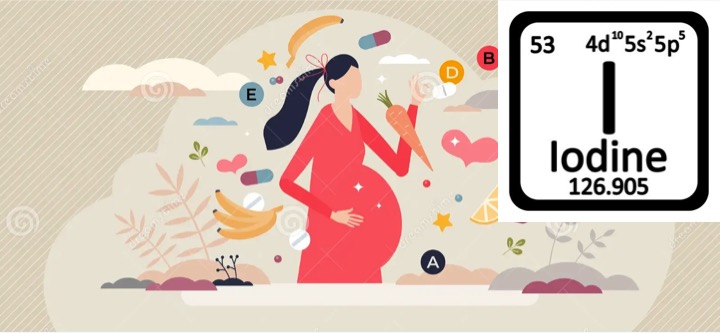Median levels of iodine among women of reproductive age in the United States have declined significantly in the past two decades, while levels among pregnant women have remained below those recommended to maintain healthy thyroid hormone status during pregnancy and prevent adverse outcomes.
“The study uncovered a worrying decline in urinary iodine concentration levels in reproductive age women in the US over the last two decades,” report the authors in research presented at the American Thyroid Association (ATA) Annual Meeting and Centennial Celebration.
The declines underscore “a lack of awareness about the importance of iodine nutrition among both medical providers and the general public,” senior author Elizabeth Pearce, MD, a professor of medicine at Boston University Chobanian & Avedisian School of Medicine, told Medscape Medical News.
A drop in dairy consumption is directly linked to the decline in iodine concentrations and inversely associated with education level and socioeconomic status among women of reproductive age.
Among pregnant women, the only factor found to be significantly associated with urinary iodine concentration was dairy consumption.
The data detail the significant trends of reduced dairy consumption, with the percentages of reproductive aged women reporting “rare” frequency of dairy consumption significantly increasing over the study period, while those reporting “often” consuming dairy products dropped from more than 50% in 2001-2004 to less than half that by 2017-2020 — and patterns were similar for pregnant women (P < .01 in both groups).
Changes in dietary trends linked to the decline in dairy consumption include increased consumption of cow’s milk substitutes such as almond milk and soy milk, which do not contain iodine.
Those reporting higher consumption of soy milk or plant-based substitutes indeed showed trends of lower median urine iodine concentrations compared with those consuming more dairy products among reproductive aged women (P for trend < .001) as well as pregnant women (P for trend = .019).
“The median urinary iodine levels of women consuming plant-based milk substitutes are lower than those in women consuming cow’s milk,” first author Cheng Han, MD, also from Boston University, said in presenting the findings.
Misconceptions About Need for Iodine
Commenting on the study, Whitney Goldner, MD, a professor of medicine and director of the Thyroid and Endocrine Tumor Program at the University of Nebraska Medical Center in Omaha, agreed there may be misconceptions about the need for sufficient iodine intake.
“Even though many foods in the US are fortified with iodine, that does not mean all persons are iodine sufficient,” she told Medscape Medical News.
“Iodine sufficiency is diet-dependent and women of childbearing age should be aware of the recommended daily intake and try to fortify their diet if necessary.”
Source : Medscape Oct 4th 2023

